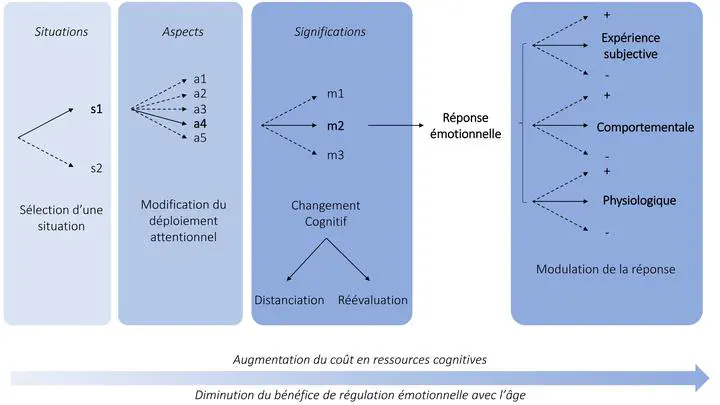
Abstract
Aging is usually associated with cognitive decline, specifically of the executive functions supported by the frontal lobe. However, in line with observations about the preservation or even the increase of well-being with age, it has been suggested that emotion regulation efficiency follows the same developmental trajectory, remaining stable over time, or even increasing. Emotion regulation refers to a family of strategies aiming at modifying the nature, the intensity, the duration or the expression of emotions. These various strategies rely on different neurocognitive processes in order to be efficient. As these processes are differently affected by aging, some of those strategies appear more affected than others. Thus, elderly people tend to use more frequently situation selection strategies, such as avoiding potentially negative situations, while their ability to regulate an emotion using cognitive reappraisal (ie, changing the meaning of the situation), a strategy drawing heavily on executive resources, appears less efficient than in younger people.